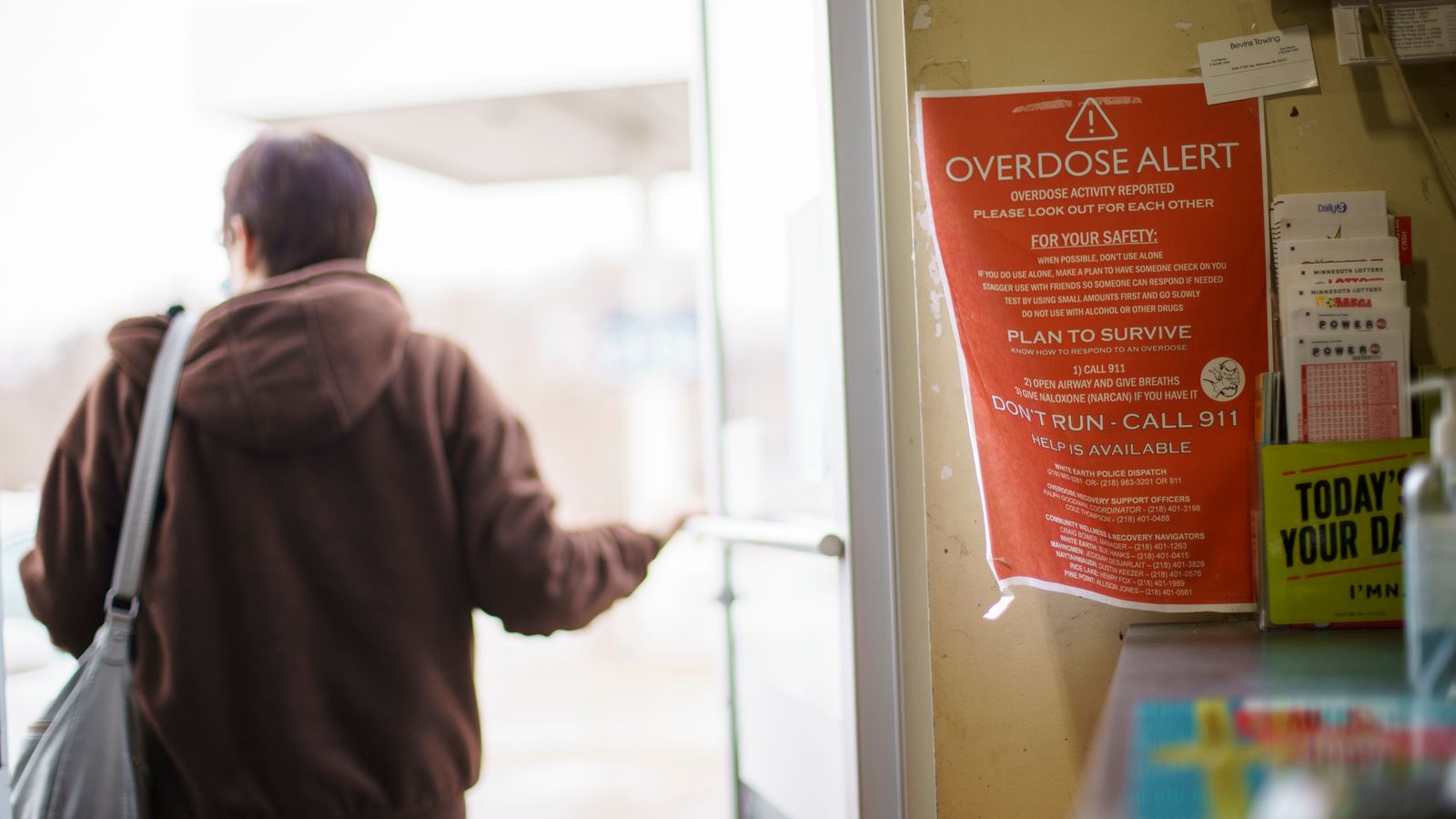Native American tribes have reached settlements of $590m (£436m) with a pharmaceutical company and three distribution firms over the toll of opioids.
Under the terms of the deal, Johnson & Johnson will pay $150m (£110m) over two years, while AmerisourceBergen, McKesson, and Cardinal will contribute $440m (£325m) over seven years.
All federally-recognised tribes in the US will be able to participate, even if they were not part of the legal action, although they must use the money to deal with the effects of the opioid epidemic.
W. Ron Allen, chair of the Jamestown K’Klallam Tribe in Sequim, Washington, said he was not expecting his tribe of about 550 people to get much from the settlement.
But what they do get will help to build a healing centre aimed at helping those addicted to opioids, he told The Associated Press.
“Every penny counts, so we’ll take it and run with it,” he added.
Crisis has left tribal governments having to spend ‘considerable tribal funds’
Opioids, including prescription drugs such as oxycontin and illegally-made fentanyl, have been linked to more than 500,000 deaths in the US in the past two decades.
Native Americans are thought to have been worst-affected, with a 2015 study finding that they had the highest per capita rate of opioid overdose of any population group that year.
According to the settlement advice, filed in federal court in Cleveland, Ohio, tribal representatives said this has left tribal governments having to spend “considerable tribal funds” on government services tribes provide to their citizens.
These services include increased healthcare costs, social services, child welfare, and law enforcement.
The tribal representatives added: “The burden of paying these increased costs has diverted scarce tribal funds from other needs, and has imposed severe financial burdens on the tribal plaintiffs, which will continue to bear significant costs related to abatement of the opioid addiction problem in their communities.”
Not an admission of liability or wrongdoing
Johnson & Johnson – which made opioids including duragesic and nucynta – said the settlement is not an admission of liability or wrongdoing.
It also said that its actions promoting prescription opioid pain medication were “appropriate and responsible” and it no longer sells such drugs.
AmerisourceBergen, based in the US state of Pennsylvania, said the deal would speed up help for communities and allow the company to focus on the pharmaceutical supply chain.
The other two companies – Cardinal and McKesson – declined to comment.
The same four companies are in the final stages of negotiating settlements worth $26bn with state and local government across the US.
More than 3,300 lawsuits have been filed – most of them by state, local and tribal governments – against those responsible for the opioid epidemic.
The companies have been accused of downplaying the addiction risk in their marketing of the drugs.
Sky News reported in September that, in the UK, Department of Health figures showed the number of prescriptions for opioids had increased by about 60% in the last decade.
At the same time, about half of drug-related deaths in England and Wales in 2020 involved the use of an opiate.
